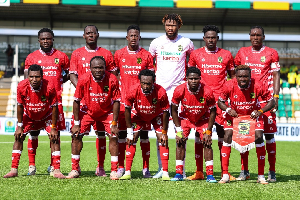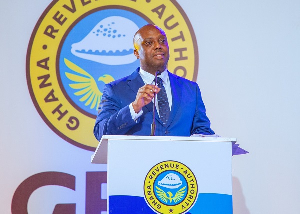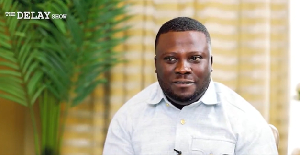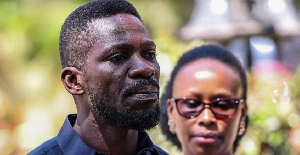By Emily Nyarko from Grahamstown, South Africa
Grahamstown (S/A), Sept. 12, GNA - Professor Kwame Karikari, Executive Director of the Media Foundation for West Africa, a press freedom and freedom of expression advocacy organisation based in Ghana on Monday said the new freedom of private media in Africa, especially radio was pushing the back of the state-owned media to the wall. He told about 400 journalists attending this year's ongoing Highway Africa Conference 2005 at the Rhodes University, Grahamstown, South Africa that in the face of the booming competition of the private media it was necessary for the state-owned media to make their news relevant to the people.
The Conference is an Information, Communications and Technology (ICT) promotion one organised by Highway Africa, an ICT journalism group based in South Africa at the Rhodes University at Grahamstown. Speaking on "Crisis in Journalism: What is to be done" at the Conference for African Journalists to help find ways of bringing development to Africa through ICT, Prof Karikari said it was necessary for the state-owned media to make its presence felt in the face of the new trends in private media, such as was happening in Ghana "where the searchlight is thrown on the Former President for example, just to sell newspapers."
"Some of them survive on the largesse of politicians and this is worrying because it creates false sectarianism in the name of money." On content, Prof. Karikari said the private radio stations were churning out news items some of which contained proverbs and that even though that was not the normal way of presentation critics should not be quick to condemn the practice but rather find out whether the style conveyed the right message to the people.
He said however that the state owned media such as the television continued to air foreign programmes rather than to produce their own locally.
On wire service, Prof. Karikari said news agencies the world-over were losing their relevance to the internet and proliferation of radio stations and therefore it was necessary for such organisations to diversify their activities so as not to collapse.
Prof. Hakan Hvitfelt, Chairman, Department of Journalism, Media and Communication at the Stockholm University said journalism was about reporting as accurately as possible and journalists ought to be free and independent to serve the watchdog role.
He said unfortunately, that was not the practice in countries like Sweden where he comes from.
"The situation is getting worse as the media is making less investigative journalism of bad quality and this for me constitutes crisis in journalism."
Prof. Hvitfelt said the Journalists Union in Sweden was making the effort to stop the practice of poor journalism in the face of about 30 per cent of journalists getting sacked within the past 10 years. According to the Professor, journalism has become a business and advertising was more important and more powerful because the professional values did not interest owners of radio, TV and newspapers. He blamed the trend on competition, which was making news content cheap as a result of new media technology such as the internet, which was growing rapidly.
Another factor that had changed the focus of journalism was global media oligopoly, which made it easy to equip organisations, cooperate with other bigger organisations to become a technique for propaganda. Prof. Hvitfelt gave the example of the media trying to defend America and Britain for what they were doing in Iraq. He said to check the trend there was the need for journalists to be well educated in propaganda and also to form stronger journalists union.
The public service media should also strive to become stronger while strict ethics must be developed and enforced. The organisers of the conference, which would end on Wednesday are seeking to come out with a view point in terms of journalism in Africa to be presented at the World Summit on Information Society (WSIS) to be held in the next two months in Tunisia.
General News of Monday, 12 September 2005
Source: GNA












